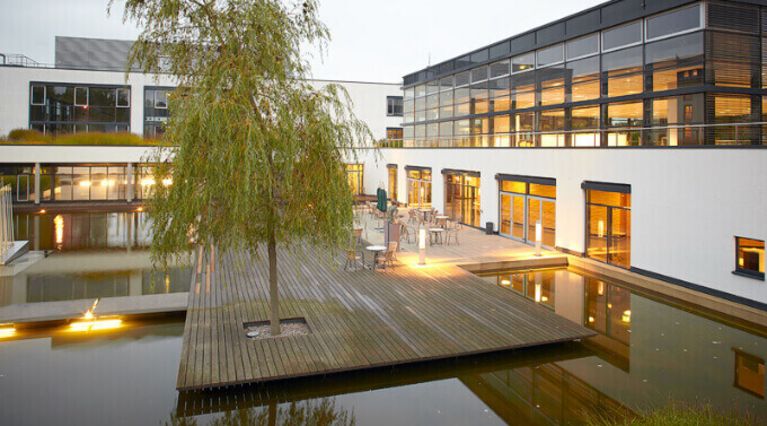
Bodies of State Parliament
The Landtag sets ist own parliamentary procedures (the Geschäftsordnung) in accordance with Article 57 Para. 5 of the Landesverfassung. Acordingly, the Landtag governs its own organization and functions, based on the principle of parliament autonomy.
Members of parliament, who belong to the same political party or list, can band together to form a parliamentary group. To fulfil their duties, the members have a right to recieve benefits and allowances from the state treasury. The opposition receives additional funds (so-called opposition bonus) sine it is a fundamental part of parliamentary democracy and has less opportunities to call on the state administrative organization.
The Landtag is represented by the speaker of the Landtag. The speaker is responsible for safeguarding the dignity and rights of the Landtag. In the house of the Landtag, the speaker has jurisdiction and exercises police power. The speaker or one of the 2 deputies presides over the plenary sessions with the support of secretaries.
The speaker and the deputies are elected at the beginning of the legislative period during the constitutive session of the Landtag in accordance with Article 1 Para. 4 of the Geschäftsordnung. The speaker and the deputies make up the executive committee of the Landtag. The executive committee participates, among other things, in the employment and dismissal of employees of the Landtag administration and in the preparation of the budget proposal by the speaker.
The Ältestenrat or Council of Elders supports the speaker in the administration of business and facilitates communication between the parliamentary groups with regard to the agenda of the Landtag and assignment of the positions of committee heads and their deputies (Art. 11 of GO). The council includes the Landtag speaker, the deputy speakers and 8 other parliamentary members designated by the parties.
Deliberation and resolutions of the plenum are prepared in the special committees of the Landtag (Article 62 of Landesverfassung). The objects of deliberation (for instance draft bills, proposals, interpellations) are usually assigned to the special committees by the plenary session of the Landtag. Committees may also choose on their own to deal with matters that have not been assigned to them, so long as the topics fall within the scope of their responsibility.
Moreover, they can provide advice on matters of their area of responsibility, whenever asked to do so by the state government or the relevant minister.
The special committees can establish subcommittees within their respective area of responsibility in order to deal with specific issues.
To prepare resolutions for substantial and important issues, the Landtag may establish official inquiry commissions (Article 63 of the Landesverfassung). The purpose of these commissions is to draw up the necessary material for clarifying complicated subject areas, to evaluate the results of the studies and present their recommendations to the Landtag. These inquiry commissions may also include people who are not members of the Landtag; as a result, the inquiry commissions do not belong to the special committees of the Landtag. Nonetheless, they still act on behalf of the Landtag. The results of their efforts are usually included in the deliberations of the Landtag through discussion of their final reports and parliamentary initiative.

